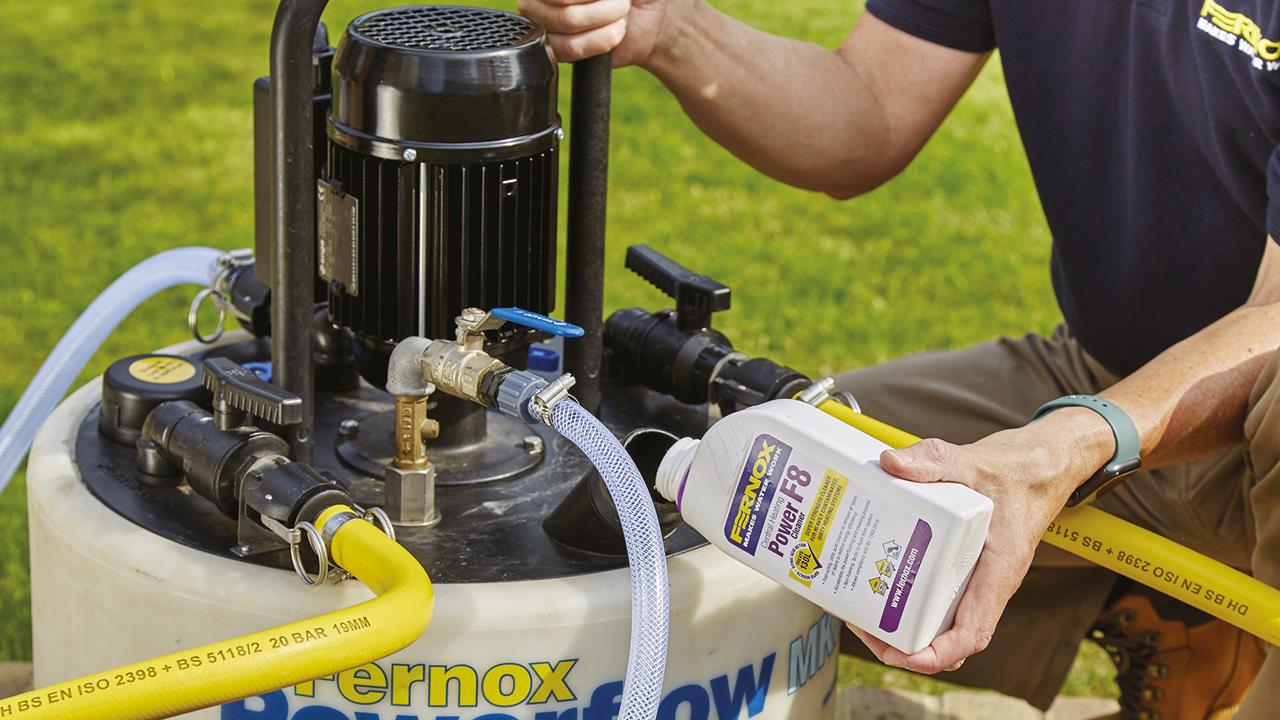

Richard Crisp, Head of Chemistry at Fernox, answers some of the top questions installers have about water treatment.
Q: What are the latest standards and guidance documents that installers should know about?
A: For guidance on the installation, commissioning, and maintenance of domestic central heating and cooling water systems, look to BS 7593:2019 which suggests that installers clean, guard, protect, maintain, and test the system to preserve optimum performance.
The Benchmark Commissioning Checklist, which acts as documented evidence of correct boiler installation and servicing, has also recently been updated and now asks:
Q: How can installers ease the testing process – especially across numerous jobs?
A: BS 7593:2019 recommends checking inhibitor levels annually to identify whether the system needs to be topped up with inhibitor. Testing kits can help to make the process easy and leading manufacturers have developed handy dip tests that give an instant pass or fail for the presence of inhibitor.
For example, when using the Fernox Express Inhibitor Test, simply dip the test strip into the water and compare it to the colour chart provided for instant confirmation that the system is protected. Recent technical advances also mean it is now easy to log results and pass certifications with apps, saving time.
For a more comprehensive overview of the system’s health, use tests that include everything required to conduct on-site tests for water turbidity, pH levels, and water hardness, as well as the presence of chemical water treatment.
In addition, BS 7593:2019 suggests either re-dosing with inhibitor or conducting a laboratory analysis of the system water every five years. Laboratory testing is easy – simply take a sample of the system water and send it off to the manufacturer’s laboratory. Always check that the technicians will conduct a diagnostic analysis of key criteria system water parameters. Once the test is complete, installers will receive a diagnostic report, which should outline any issues and details of how to fix them.
Q: Can you explain the different types of chemical cleaners and when they should be used?
A: To remove flux residues and other debris from existing central heating systems, or when commissioning new systems in accordance with BS 7593:2019, a universal pH neutral chemical cleaner can be used to remove sludge, scale, and debris, and extend the life of the boiler and the efficiency of the system.
However, if the system is heavily sludged, a more powerful cleaner may be needed. For the best results, you should choose a cleaner that can accelerate and aid powerflushing, as well one that manual and magnetic cleans to restore heating efficiency. Fernox Power Cleaner F8 is one such product, and it is suitable for retrofit scenarios and boiler swap outs when existing, dirty systems need to be thoroughly cleaned.
Finally, to clean heavily scaled systems, acidic cleaner products may be required. This type of product must be used alongside a system neutraliser to allow safe disposal to a foul drain. Neutralising also ensures that any residues which remain in the system prior to refilling are already near optimum system pH.
Q: How can installers protect systems during the winter months?
A: When the weather gets colder, a common issue for unoccupied premises, garages, and static caravans is frozen pipes. This is a particular problem when pipes are situated outside or in unheated areas. As the pipes freeze, the flow of water becomes restricted, which causes the pipes to block and the system to fail. Frozen water within the pipes expands, creating pressure, which can lead to burst pipes resulting in major leaks and flooding.
With the right products to hand, installers can easily prevent this situation. Antifreeze products will prevent the water molecules from binding together and forming ice. Always look to use a combined antifreeze and inhibitor product, so that the system water is also treated with a high-performance inhibitor to stop corrosion, as well as limescale formation and build-up. This will protect and extend the lifespan of the system and comply with regulations and best practice.
If you'd like to keep up-to-date with the latest developments in the heating and plumbing industry, why not subscribe to our weekly newsletters? Just click the button below and you can ensure all the latest industry news and new product information lands in your inbox every week.